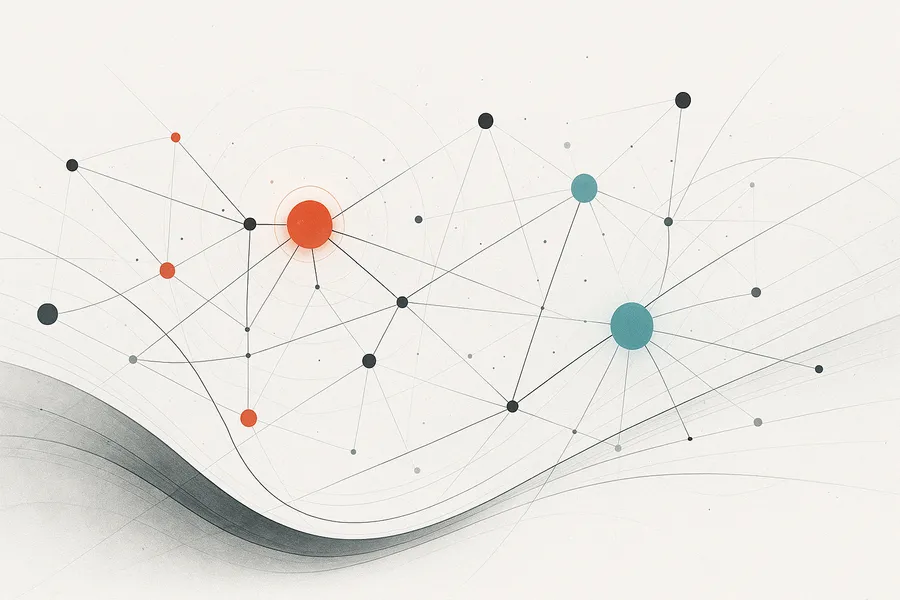Can a machine detect a defect before an operator? Predict when a key component will fail without disassembling it? Or even anticipate consumer behavior weeks in advance?
Until a few years ago, the answer to these questions was a resounding “no.” Today, thanks to machine learning, it’s not only possible: it’s profitable, scalable, and accessible even for traditional companies and small industries.
The Evolution from Industrial to Intelligent
In recent decades, we saw a first wave of industrial digitalization: sensors, control software, SCADA dashboards. But that information, in many cases, remained unexploited. It was like having thousands of cameras recording, but with no one watching the tapes.
Machine learning allows, for the first time, converting this data into autonomous decisions, practical recommendations, or preventive alerts. And it’s not limited to large corporations. More and more SMEs and medium-sized factories are incorporating these technologies incrementally and effectively.
What is Machine Learning in Simple Terms?
It’s teaching a computer to find patterns within data and, with that, make decisions or predictions. Unlike traditional software (which follows fixed rules), ML learns from examples, allowing it to adapt, improve, and generalize.
Some common algorithms:
- Classification: predict categories (e.g., defective vs. non-defective product)
- Regression: estimate a number (e.g., future energy consumption)
- Clustering: find natural groupings (e.g., segment types of failures)
- Computer Vision: analyze images or video (e.g., detect poorly assembled parts)
Real Stories: How It’s Applied in Industry
Traditional Manufacturing
In a metal valve factory, visual inspectors spent hours detecting micro-cracks. Today, a high-resolution camera combined with a computer vision model detects imperfections invisible to the human eye. The result: fewer returns, greater consistency, and workers dedicated to higher-value tasks.
Additionally, a classification model analyzes the sound of each machine, and when it detects an anomalous pattern in vibration or audio, it triggers a preventive alert before the equipment fails.
Distribution and Retail
In supply chains, a regression algorithm predicts weekly demand for each product, considering weather, history, and trends. This prevents both stockouts and overstock.
Meanwhile, clustering models allow segmenting customers beyond age or city: they’re now grouped by behavior, purchase frequency, or price sensitivity, enabling personalized marketing without needing to know the customer by name.
Energy and Services
Electric companies are using models to predict consumption and automate energy purchasing. But also, small solar panel providers train algorithms that detect efficiency losses in each panel using only voltage and temperature data.
What If I’m Not a Data Expert and Don’t Have a Technical Team?
Here’s the good news: you don’t need to be Google to get started.
In fact, many successful implementations in traditional companies begin with:
- A single well-defined problem (for example, “I’d like to predict failures before they occur”)
- Historical data even if incomplete
- A technology partner to guide you through design, testing, and implementation
At Redstone Labs, we propose simple, low-cost pilots with quick validation, allowing any company to experiment with machine learning without compromising their operations.
Steps to Make the Leap (Without Falling for Empty Promises)
- Define a clear business objective: reduce scrap, lower consumption, improve response times.
- Survey available data: sensors, spreadsheets, ERPs, etc.
- Evaluate technical feasibility with experts: which algorithms apply, what can be quickly simulated.
- Execute a limited pilot (4-8 weeks): measure real impact, involve end users.
- Scale with MLOps processes and continuous monitoring: models also need maintenance.
Conclusion
Artificial intelligence won’t replace people in industry. But it will replace companies that don’t use it, facing competitors that do.
Machine learning represents a concrete opportunity to reduce costs, improve quality, and get ahead of the future. It’s not science fiction: it’s applied science.
Want to explore how it could be applied in your company, without complications or technicalities?
Let’s talk. At Redstone Labs, we specialize in bringing AI to those who need it most.
